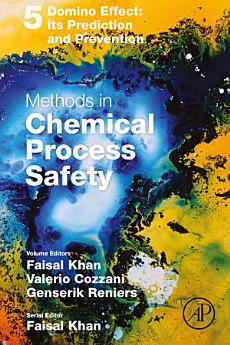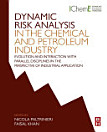Domino Effect: Its Prediction and Prevention
Um þessa rafbók
Um höfundinn
Faisal Khan is a Chemical Engineering Professor and Director of the Mary Kay O’Connor Process Safety Center and the Ocean Energy Safety Institute, Texas A &M University. He is the founder of the Centre for Risk Integrity and Safety Engineering (C-RISE), a Fellow of the Canadian Academy of Engineering, the Engineering Institute of Canada, and the Canadian Society of Chemical Engineering. His areas of research interest include offshore safety and risk engineering, inherent safety, risk management, and risk-based integrity assessment and management. Dr. Khan is actively involved with multinational oil and gas industries on the issue of safety and asset integrity. He also served as the Safety and Risk Advisor to the Government of Newfoundland, Canada. He continues to serve as a subject matter expert to many organizations including Lloyd’s Register EMEA, SBM Modco, Intecsea, Technip, and Qatar-gas. He served as a Visiting Professor of Offshore and Marine Engineering at Australian Maritime College (AMC), University of Tasmania, Australia where he led the development of offshore safety and risk engineering group and the initiative of global engagements with many international institutions. He is the recipient of President Outstanding Research Award of 2012-13 at Memorial University, President Outstanding Research Supervision Award of 2013-14 at Memorial University, CSChE National Award on Process Safety Management of 2014, P, and Society of Petroleum Engineer award for his contribution to Health, Safety and Risk Engineering. He has authored over 500 research articles in peer-reviewed journals and conferences on safety, risk, and reliability engineering. He has authored five books on the subject area. He is the Editor of the Journal of Process Safety and Environmental Protection, Safety in Extreme Environment, and ASME Part A (Risk and Uncertainty Analysis). He regularly offers training program/workshop on safety and risk engineering in different places including St John’s, Chennai, Dubai, Beijing, Aberdeen, Cape Town, Doha and Kuala Lumpur.
Genserik Reniers works at the Universita di Bologna, DICAM in the Laboratory for Industrial Safety and Environmental Sustainability, Bologna in Italy.
Valerio Cozzani (1968) received his Ph.D. in Chemical Engineering from the University of Pisa (Italy) in 1996. During the Ph.D. he spent an year at the Industrial Hazard Unit (IPSC) of the Ispra European Community Joint Research Centre. After the Ph.D. he joined the National Research Group on Chemical and Environmental Risk of the Italian National Council of Research. Formerly lecturer at the University of Pisa, he is now professor at the Department of Civil, Chemical, Environmental and Materials Engineering of Bologna University, where he leads the Laboratory on Industrial Safety and Environmental Sustainability. He is Director of the academic graduate and undergraduate programs in Chemical Engineering an lectures on unit operations, design, loss prevention and risk assessment. He coordinated several joint university-industry training projects. His main research experience is in the field of safety of chemical processes and of environmental and energy technologies. The specific subjects afforded in his research activity are, among others, the development of innovative methodologies and models for hazard and risk analysis, the development of models for equipment damage and the implementation of procedures for the quantitative assessment of accidental scenarios triggered by external hazard factors. He has a wide experience in leading national and international research projects funded either by public organizations or by private companies. He coordinates the Italian working party on safety in the chemical and process industry (CISAP) and is Member of the Working Party of Loss Prevention (EFCE). He received the Trevor Kletz Merit Award 2015 for outstanding contributions to the field of Process Safety. He serves as Associate Editor of Safety Science and is a member of the Editorial Boards of the Journal of Hazardous Materials and of the Journal of Loss Prevention in the Process Industry.










